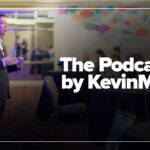“Some people learn. Some don’t.
For the former, growing old is a joy.
For the latter, it is hell.”
I’ve seen both.
In exam rooms, break rooms, ORs, and coaching sessions. One physician softens—more present, less defended. Another hardens—brittle, often angry.
The difference isn’t intelligence, training, or temperament.
It’s whether they’re willing to learn—not just from books or trials, but from life itself.
What happens when physicians refuse to learn
Medicine does not require emotional growth to function. One can rise in the system without ever truly reflecting on oneself. Procedures become muscle memory. Guidelines are memorized. A persona is adopted and rarely questioned.
But midlife has a way of puncturing that scaffolding.
For the physician who avoids self-examination, the years bring more than physical aging—they bring disorientation. Younger colleagues seem faster, or looser, or less reverent. Technology shifts. Control erodes. Workload increases, but meaning diminishes.
Some double down on rigidity. They become critical, sarcastic, and emotionally unavailable. They speak often of “how things used to be,” and rarely of what still matters now.
In coaching, this often shows up as bitterness—and underneath, grief.
What happens when physicians are willing to learn
But there are others—equally seasoned, equally scarred—who change in the other direction.
They begin to ask harder questions. They listen differently. They laugh more often, and more gently. They no longer need to be the smartest person in the room. They trade invulnerability for presence.
These physicians often find new meaning through mentorship, reflection, or even a complete reorientation of priorities. They are still deeply engaged—but with less ego and more humanity.
I recall one internist who, after three decades in practice, began facilitating narrative medicine workshops. “I thought I was burned out,” she told me. “I was just unused to silence.”
Jung, and the task of midlife
Carl Jung wrote,
“The afternoon of life is just as full of meaning as the morning; only, its meaning and purpose are different.”
(Collected Works, Vol. 7, para. 114)
The challenge for many physicians is that no one taught them the vocabulary for that second half. We are trained in performance, not reflection. In mastery, not integration. In action, not surrender.
And yet midlife in medicine demands exactly those things.
Without them, many physicians feel displaced from their own identity. Not because they’re no longer useful—but because they never built a self that could exist outside of work.
The good news: It’s not too late
The physicians who age gracefully aren’t better people. But they’ve done the inner work.
That work can begin at any time. It might include:
- Looking honestly at your emotional patterns
- Naming your grief—personal and professional
- Letting go of the identity built only on competence
- Rediscovering joy in something that has nothing to do with medicine
Some physicians begin this journey with coaching. Others through stillness, writing, or quietly letting go of the performance they’ve worn for years. There is no single map.
But the difference remains.
Some people learn. Some don’t.
For the former, growing old is a joy.
For the latter, it is hell.
And medicine, for all its rewards, will not save you from that.
Patrick Hudson is a retired plastic and hand surgeon, former psychotherapist, and author. Trained at Westminster Hospital Medical School in London, he practiced for decades in both the U.K. and the U.S. before shifting his focus from surgical procedures to emotional repair—supporting physicians in navigating the hidden costs of their work and the quiet ways medicine reshapes identity. Patrick is board-certified in both surgery and coaching, a Fellow of the American College of Surgeons and the National Anger Management Association, and holds advanced degrees in counseling, liberal arts, and health care ethics.
Through his national coaching practice, CoachingforPhysicians.com, which he founded, Patrick provides 1:1 coaching and physician leadership training for doctors navigating complex personal and professional landscapes. He works with clinicians seeking clarity, renewal, and deeper connection in their professional lives. His focus includes leadership development and emotional intelligence for physicians who often find themselves in leadership roles they never planned for.
Patrick is the author of the Coaching for Physicians series, including:
- The Physician as Leader: Essential Skills for Doctors Who Didn’t Plan to Lead
- Ten Things I Wish I Had Known When I Started Medical School
He also writes under CFP Press, a small imprint he founded for reflective writing in medicine. To view his full catalog, visit his Amazon author page.





















![AI censorship threatens the lifeline of caregiver support [PODCAST]](https://kevinmd.com/wp-content/uploads/Design-2-190x100.jpg)
